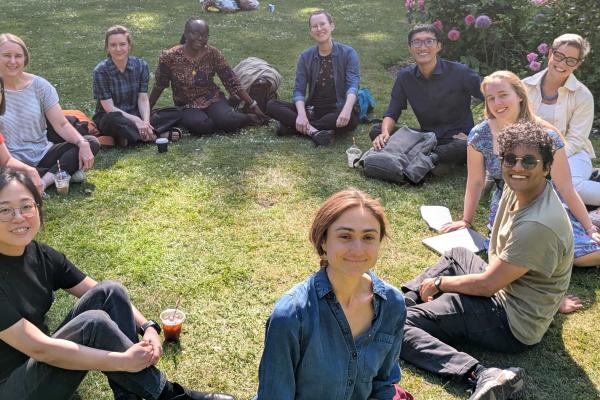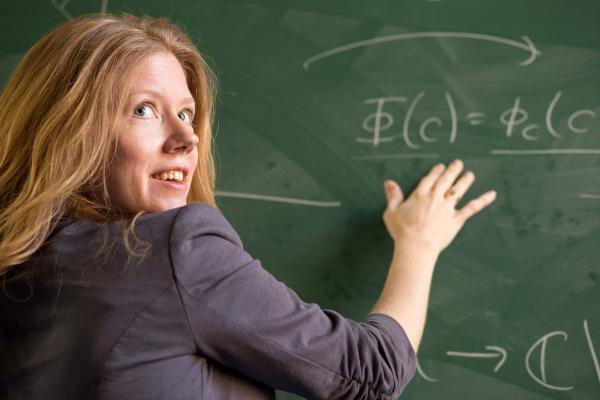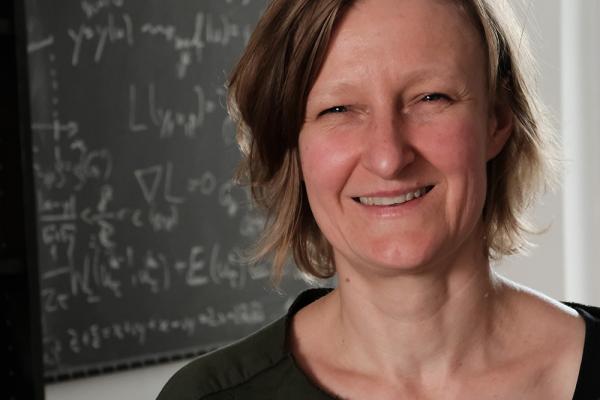

Plus is based at the Centre for Mathematical Sciences at the University of Cambridge. We are very fortunate to work with many brilliant colleagues in the Maths Faculty, you will find the content we have produced with them below.

Plus is based at the Centre for Mathematical Sciences at the University of Cambridge. We are very fortunate to work with many brilliant colleagues in the Maths Faculty, you will find the content we have produced with them below.

We meet some of the researchers who are trying to translate between the two very different worlds of mathematics and politics.

We talk to Krieger about her work, sharing mathematics with wider audiences, and advice for young mathematicians

In this episode of Living Proof we talk to a playwright and a physicist about a book they have written together on the marvellous but tricky theory of quantum mechanics!

One of our favourite colleagues here at the University of Cambridge is Professor of Applied Mathematics Carola-Bibiane Schönlieb. We have had the pleasure to work with her quite a bit over the last few years.

Join us in a wavy dance from the very small to the very large with theoretical physicist David Tong!

Find out how random shapes shed light on one of the hardest problems in physics.

We join Maths4DL researchers for an intensive hackathon working on some of the most challenging problems posed by artificial intelligence.

A new language to talk about quantum physics is making calculations a whole lot easier.

Find our what the Isaac Newton Institute for Mathematical Sciences is doing to promote the communication of mathematics and hear from mathematical communications superstar Hannah Fry!

The type of AI currently in use is based purely on data. How much more powerful would it be if it also has access to humanity's vast knowledge of physics? Find out more in this collection of content.




Julian Sahasrabudhe wins a Whitehead Prize for combining different areas of maths using the power of combinatorics.

Hannah Fry will join us at the University of Cambridge in January as Cambridge's first Professor for the Public Understanding of Mathematics!